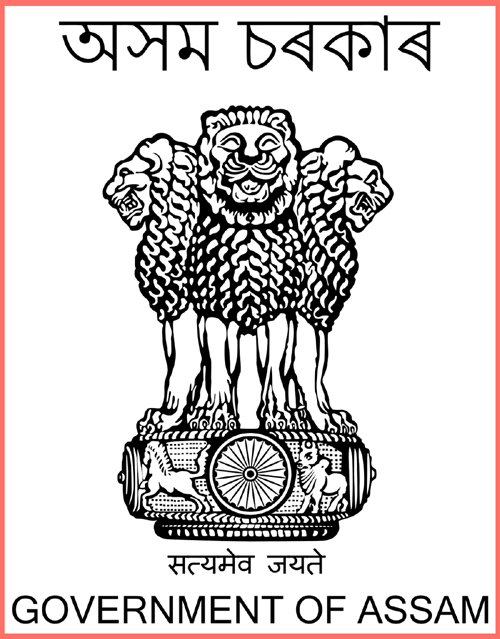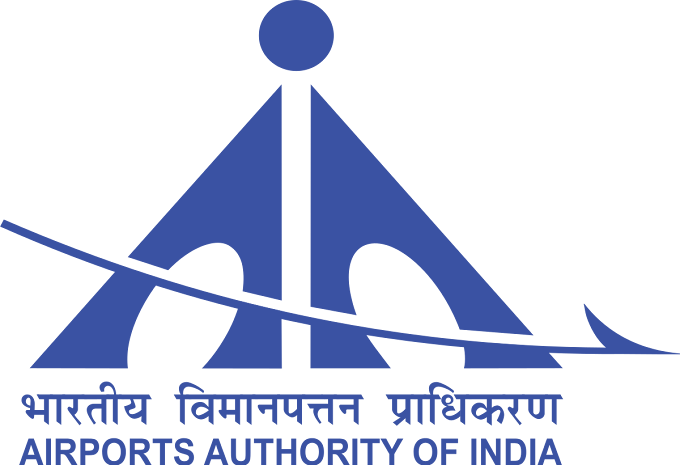The Union Cabinet has today approved the New Education Policy (NEP) 2020. One of the major decision, the Cabinet has renamed the Ministry of Human Resource and Development (MHRD) as the Ministry of Education.
The new policy would also see an overhaul of the system in place in higher education.
New Education Policy: Highlights
Outcomes of NEP 2020:
Major Reforms: School Education:
Use of Technology
Major Reforms: Higher Education
Download NEP 2020 - Click Here
The new policy would also see an overhaul of the system in place in higher education.
New Education Policy: Highlights
Outcomes of NEP 2020:
- Universalization from ECCE to Secondary Education by 2030, aligning with SDG4
- Attaining Foundational Learning & Numeracy Skills through National Mission by 2025
- 100% GER in Pre-School to Secondary Level by 2030
- Bring Back 2Cr out of School Children
- Teachers to be prepared for assessment reforms by 2023
- Inclusive & Equitable Education System by 2030
- Board Exams to test core concepts and application of knowledge
- Every Child will come out of School adept in at least one Skill
- Common Standards of Learning in Public & Private Schools
Major Reforms: School Education:
- Board exams will be low stakes & test actual knowledge instead of rote learning
- Mother tongue to be a medium of instruction till 5th grade
- Report cards will be a comprehensive report on skills and capabilities instead of just marks and statements
- National mission to focus on basic literacy and basic numeracy
- Major changes in the pedagogical structure of curriculum with no rigid separation between streams
- All separations between vocational and academic and curricular and extra-curricular will also be removed
- New National Curriculum Framework for ECE, School, Teachers and Adult Education
- Board Examination will be Low Stakes, Based on Knowledge Application
- Medium of Instruction till at least Grade 5, and preferably till Grade 8 and beyond in Home Language/ Mother tongue/ Regional Language
- 360 degree Holistic Progress Card of Child
- Tracking Student Progress for Achieving Learning Outcomes
- National assessment center - PARAKH
- NTA to offer Common Entrance Exam for Admission TO HEIs
- National Professional Standards for Teachers (NPST)
- Book Promotion Policy and Digital Libraries
- Transparent online self disclosure for public oversight and accountability
- Universalization of Early Childhood Care Education (ECCE)
- National Mission on Foundational Literacy and Numeracy
- 5+3+3+4 Curricular and Pedagogical Structure
- Curriculum to integrate 21st Century Skills, Mathematical Thinking and Scientific temper
- No Rigid Separation between Arts & Sciences, between Curricular and extra-Curricular activities, between Vocational and Academic streams
- Education of Gifted Children
- Gender Inclusion Fund
- KGBVs upto Grade 12
- Reduction in Curriculum to Core Concepts
- Vocational integration from Class 6 onwards
Use of Technology
- Education Planning
- Teaching Learning & Assessment
- Administration & Management
- Regulation- Self Disclosure & Minimum Human Interface
- Increasing Access for Disadvantaged Groups
- Divyang Friendly Education Software
- e-Content in Regional Language
- Virtual Labs
- National Educational Technology Forum (NETF)
- Digitally Equipping Schools, Teachers and Students
- Graded Autonomy: Academic, Administrative & Financial
- Phasing out Affiliation System in 15 years
- National Mission on Mentoring
- Independent Board of Governors (BoG)
- Single Regulator for Higher Education (excluding Legal and Medical)
- On-line Self Disclosure based Transparent System for Approvals in place of 'Inspections'
- Common Norms for Public and Private HEIs
- Private Philanthropic Partnership
- Fee fixation within Board Regulatory Framework
- Public Investment in Education Sector to reach 6% of GDP at the earliest
Major Reforms: Higher Education
- 50% Gross Enrollment Ration by 2035
- Holistic and Multidisciplinary Education- Flexibility of Subjects
- Multiple Entry/Exit
- UG Programme - 3 or 4 years
- PG pgrogramme - 1 or 2 years
- Integrated 5 year bachelor's/Master's
- M Phil to be discontinued
- Credit Transfer and Academic Bank of Credits
- HEIs: Research Intensive/ Teaching Intensive Universities and Autonomous Degree Granting College
- Model Multidisciplinary Education and Research University (MERU)
- The present Education Policy was adopted in 1986 which have been continued till date that is for last 34 years
- The country got the education policy after 34 years
- The Union Cabinet, chaired by the PM himself, has approved the Draft of National Education Policy today morning.
- The Cabinet has also accepted the puposal of changing name of MHRD to Education Ministry.
- The vision of creating an education system that contributes directly to transforming the country, providing high-quality education to all, and making India a global knowledge superpower.
কি আছে নতুন শিক্ষানীতি ২০২০ ত ?
• ডিগ্ৰী এতিয়াৰ পৰা তিনিবছৰৰ ঠাইত চাৰি বছৰীয়া হ'ব। কিন্তু কোনোবাই যদি এবছৰ পঢ়ি এৰি দিয়ে তাৰো স্বীকৃতি পাব। কিয়নো ১ বছৰ পঢ়িলে চাৰ্টিফিকেট পাব, ২বছৰ পঢ়িলে ডিপ্লমা, তিনি বছৰ পঢ়িল ডিগ্ৰী আৰু চাৰিবছৰ পঢ়িলে ডিগ্ৰীৰ সৈতে ৰিচাৰ্চ চাৰ্টিফিকেট পাব। কিমান বছৰ পঢ়ে সেয়া আপোনাৰ ইচ্ছা। পিজিৰ ক্ষেত্ৰতো ১ বছৰীয়া আৰু ২ বছৰীয়াৰ অপচন থাকিব।
• ২০১৪ চনৰ নিৰ্বাচনী ইস্তাহাৰত কোৱাৰ দৰেই শিক্ষাখণ্ডত মুঠ জিডিপিৰ ৬% ব্যৱহাৰ কৰা হ'ব। যিটো বৰ্তমান ৩%
• বৰ্তমানৰ ১০+ ২ ৰ পৰিৱৰ্তে শিক্ষা ব্যৱস্থাটো ৫+৩+৩+৪ ত বিভক্ত হ'ব।
• পৰীক্ষাবোৰ ক্লাছ ৩য় ,৫ ম আৰু ৮ম হ'ব। অৰ্থাৎ ক্লাছ ৮ লৈ প্ৰতিবছৰে পৰীক্ষা নাথাকে।মাত্ৰ তিনিটা পৰীক্ষা হ'ব। যিয়ে পৰীক্ষাকেন্দ্ৰিক শিক্ষা ব্যৱস্থাত বহুখিনি সংশোধন আনিব।
• ৬ষ্ঠ শ্ৰেণীৰ পৰা কোডিং বাধ্যতামূলক হ'ব। সময়ৰ লগত চলিবলৈ এইটো খুউৱ প্ৰয়োজন আছিল।
• স্কুলতে বৃত্তিমূখী শিক্ষাৰ ব্যৱস্থা কৰা হ'ব ।
• ৫ ম শ্ৰেণীলৈ ( যদি প্ৰয়োজন ৮ ম শ্ৰেণীলৈ) মাতৃভাষাত পাঠদানৰ ব্যৱস্থা কৰা হ'ব।
• সকলো শ্ৰেণীতে সংস্কৃত ভাষা উপলব্ধ হ'ব আৰু মাধ্যমিকৰ পৰা বিদেশী ভাষা লোৱাৰ সুবিধা থাকিব। অৱশ্যে কোনো ভাষা বাধ্যতামূলক নহয়।
• IIT ৰ দৰে প্ৰতিষ্ঠানবোৰ সামগ্ৰিক শিক্ষা লাভৰ অনুষ্ঠান হিচাপে ৰূপান্তৰ কৰা হ'ব। অৰ্থাৎ বিজ্ঞানৰ ছাত্ৰৰ বাবেও কলা বিভাগৰ বিষয় বা আন আন বিষয়বোৰো উপলব্ধ হ'ব। or vice versa
• সমগ্ৰ দেশত বিশ্ববিদ্যালয়ৰ নামভৰ্ত্তিৰ বাবে এটায়েই entrance হ'ব। যিটো খুউৱ ভাল সিদ্ধান্ত।
• নতুন শিক্ষা নীতি অনুসৰি বিজ্ঞান , কলা , বাণিজ্যৰ কঠোৰ ভাগ কৰা নাথাকিব। অৰ্থাৎ পদাৰ্থ বিজ্ঞান আৰু ৰাজনীতি বিজ্ঞান একেলগে পঢ়িব পাৰিব।
• এতিয়াৰ পৰা নাথাকিব m.phil পাঠ্যক্ৰম।
• বিশ্বৰ শীৰ্ষ এশখন বিশ্ববিদ্যালয়ক ভাৰতত কেম্পাছ পাতিব অনুমতি দিয়া হ'ব।
• HECI ক চাৰিটা ভাগত ভাগ কৰা হ'ব। National Higher Education Regulatory Council for regulation, General Education Council to set standards, Higher Education Grants Council for funding and National Accreditation Council for accreditation.







